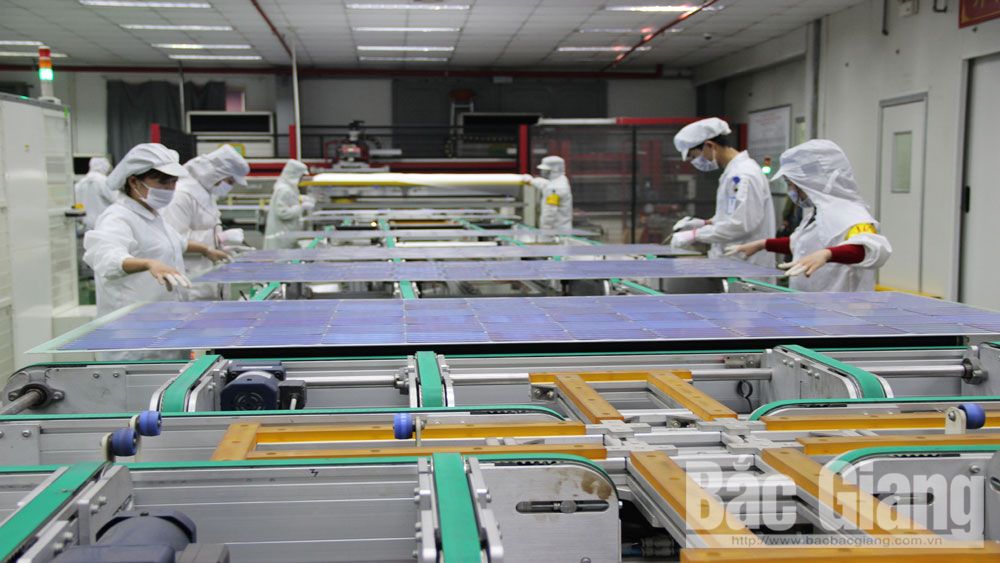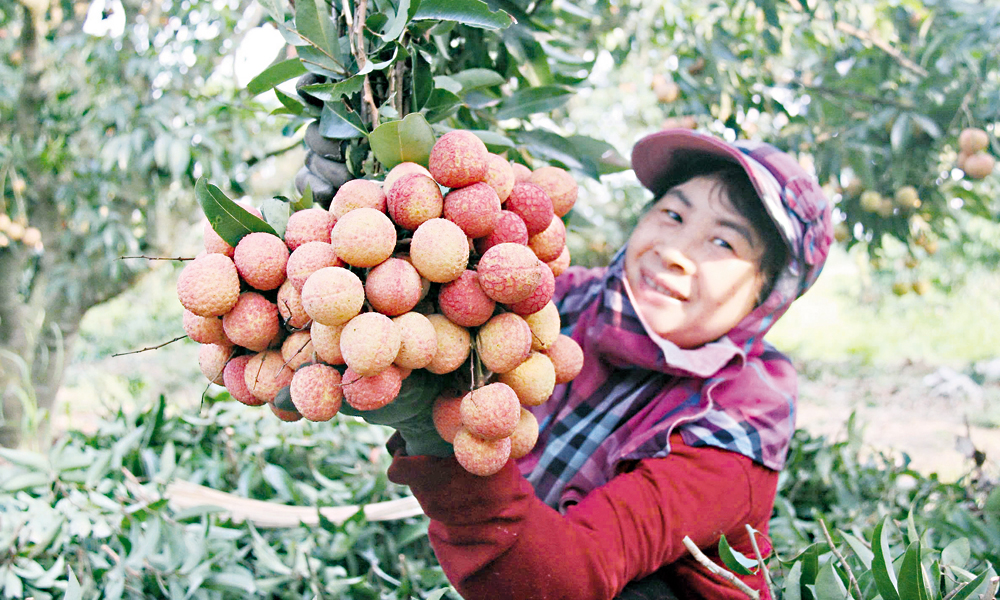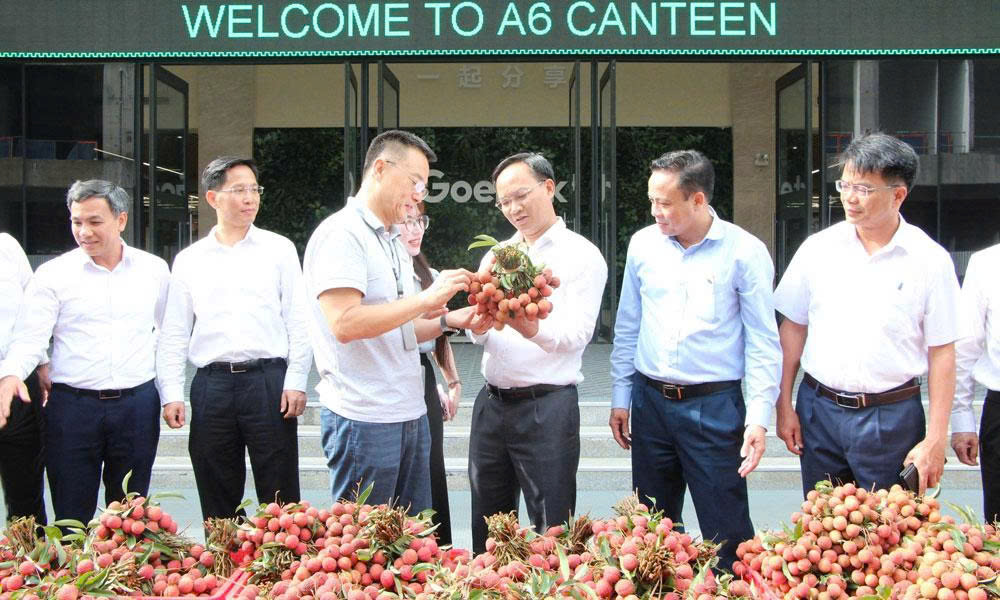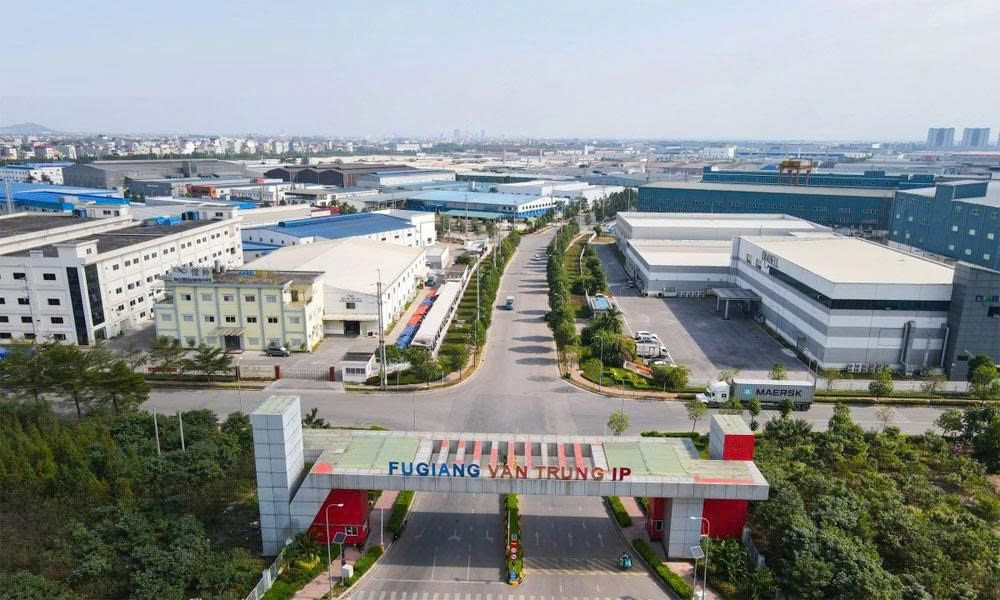Bac Giang enterprises take advantage of tariff-related opportunities to boost exports
The Ha Phong Export Garment Joint Stock Company based in Doan Bai commune (Hiep Hoa district) boasts strengths in textile products, children's clothing and especially clothes for export.
Currently, the company has 96 sewing lines, employing about 12,000 workers. Vu Thi Thanh Ha, a company official, said that since the beginning of the year, the company’s total export value reached 126 million USD, up 73 percent year on year, with the main markets being the US and Europe.
 |
|
Producing solar panels at Vina Solar Technology Co., Ltd. |
According to Bang Hai Sinh, an import and export officer of Vina Solar Technology Co., Ltd., based in the Van Trung Industrial Zone (Viet Yen district), the company’s solar battery factory is among the largest of its kind in Vietnam. In the past 7 months, the company produced 36 million products and all of them were exported.
Nguyen Van Tap, head of the Import-Export Management Division (the provincial Department of Industry and Trade), said that the global economy in the first half of 2019 showed signs of growth, positively impacting the import and export of Bac Giang.
In nearly 7 months, the province's import turnover reached 2.9 billion USD while its export revenue was 3.1 billion USD, up 3.5 percent over the same period last year. The main exports were textile and electronic products, solar panels, and agricultural products.
This result was achieved thanks to the enterprise’s efforts and significant contributions of competent agencies.
According to Ngo Thanh Tuyen, Deputy Director of the Sub-department of Customs in charge of managing industrial zones in Bac Giang, the unit has focused on well implementing professional measures, quickly resolving obstacles, and creating favorable conditions to attract businesses in the province and surrounding areas to do customs procedures.
In the coming time, the sub-department will continue to carry out customs procedures in a clear and time-saving manner but still ensure strict management of import and export goods.
However, according to authorised agencies, the province's export turnover increased but was not really sustainable, with shortcomings in the structure, mainly focusing on processed and assembled commodities; and low domestic production value. Although trade promotion has been paid attention, it has not really become a tool and bridge for enterprises.
In order to achieve the export turnover target of 8.4 billion USD for the whole year, in the coming time, the provincial Department of Industry and Trade will focus on improving the quality of trade promotion; plans to boost production and export of goods with potential for development and use of many domestic materials such as electronics, garment, furniture and agricultural products...
It will also attach importance to tapping traditional and key export markets and encouraging enterprises to invest in expanding production scale, innovating technology and equipment.
The department will propose the Ministry of Industry and Trade provide information and forecasts on the situation of domestic and world commodity markets, laws, policies and trading practices of markets to help enterprises improve their competitiveness and enter the markets more effectively.
According to Nguyen Cuong, Deputy Director of the provincial Department of Planning and Investment, participating in FTAs with commitments to cutting and reducing tariffs on goods of Vietnamese origin has improved domestic goods’ competitiveness and helped them increase their market share in partner markets.
Bac Giang enterprises can take full advantage of tariff preferences brought by FTAs, but first of all, they must meet requirements of origin, technical barriers and epidemiological hygiene from import markets...
The Department of Planning and Investment will advise the provincial People's Committee to direct agencies and localities to continue implementing measures to solve difficulties for businesses and actively support export enterprises, especially in getting loans, labor and tax incentives, thus creating conditions for businesses to develop production.
Quoc Phuong
 Bắc Ninh
Bắc Ninh














Reader's comments (0)